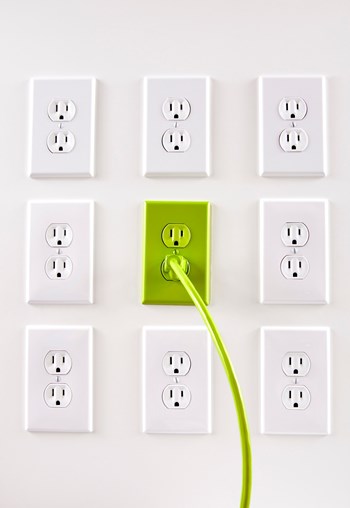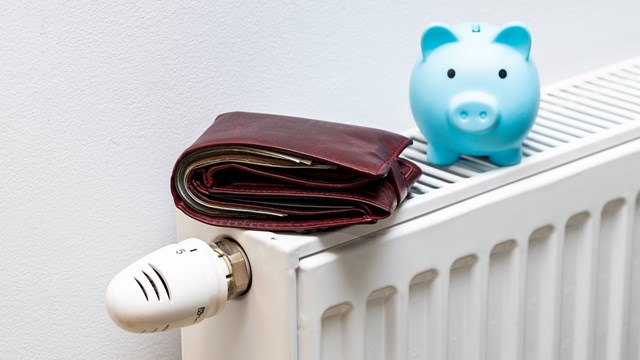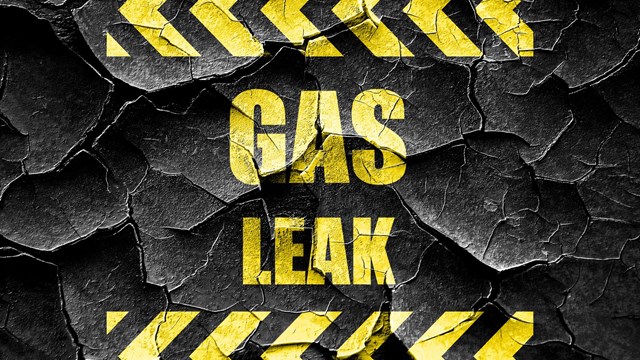
It began last August with noncompliance with energy regulations in Ohio, and within hours, much of the Eastern Seaboard - including the city that never sleeps - came to a standstill. Although some areas of the city recovered power faster than others after the blackout of 2003, the question remains: Will it happen again? What has been done to prevent it? And most importantly, what can a building do to keep residents safe in the event of a blackout?
Before pushing the panic button (which wouldn't work during a blackout anyway) co-op and condo buildings can follow several simple measures to not only conserve energy but also prevent losing power altogether. With conscientious energy consumption and the efforts of the New York State Independent System Operators (NYISO) and Con Ed, future blackouts of such magnitude should remain only a very remote possibility.
According to Carol Murphy, vice president of government affairs and communications for NYISO based in Albany, the power problem last summer originated in Ohio and cascaded eastward from there. "It was First Energy Utility in Ohio that did not follow the operating rules," she explains. Unfortunately, Murphy says, those operating rules are not mandatory in many areas of the country. "[First Energy Utility] violated a number of those operating rules. The blackout was largely preventable, if the people in the Midwest had complied with those standards and taken action before the problem spiraled out of control."
While we here in New York City may not be able to single-handedly prevent another citywide blackout, there are certain steps that can be taken to lessen the impact of another occurrence and reduce the chances of people in multi-family buildings being injured in a blackout. There are several safety tips that should be communicated - via meeting, seminar, newsletter, bulletin board, or e-mail - to all residents of multi-family buildings in the area, regardless of whether they're owners, renters, or subletters.
The first step toward surviving a blackout or other emergency unscathed is to be prepared. According to the American Red Cross, apartment-dwellers should assemble essential supplies, including:
- A flashlight
- Batteries
- A portable radio
- At least one gallon of water, plus plenty of cool water for pets
- A small supply of food for both humans and pets.
Due to the extreme risk of fire, the Red Cross does not recommend the use of candles during a power outage.
There are also a number of things building residents can do to help insure their safety during a blackout situation:
- Use only flashlights for emergency lighting; never candles
- Turn off electrical equipment you were using when the power went out.
- Avoid opening the refrigerator and freezer.
- Do not run a generator inside a home or garage.
- Listen to local radio and television for updated information.
Having an intelligent emergency plan is especially important for buildings that are home to any disabled or elderly persons who might need extra consideration when planning escape routes, supply lists, and emergency communication systems. If a resident uses a battery-operated wheelchair, life-support system, or other power-dependent equipment, for example, the Red Cross advises managing agents or board members to call their local power company before a power emergency happens. Many utility companies keep a list and map of the locations of power-dependent customers in case of an emergency. If available, buildings should also consider storing a lightweight manual wheelchair or two for backup, and to assist those who may be unable to walk to safety.
One of the most troublesome side effects of a blackout is the oft-mentioned "power surge" that occurs when the juice comes back on. Power surges can wreak havoc on electronic equipment, start fires, and even prolong the initial blackout if enough fuses and circuits are overloaded.
To prevent surges, the Red Cross advises apartment dwellers to turn off or disconnect any appliances or electronics they might be using when the power goes out. Building staff should also take care to shut down motorized building systems, so that should the power come back with a momentary surge or spike, the motors powering the HVAC and the building electrical wiring systems will be spared.
Lewis M. Kwit, president of Energy Investment Systems, a New York-based energy consulting and public policy company, says co-op and condo buildings are looking into new technologies to keep the lights on regardless of blackout conditions. "There are different technologies, depending on the size of the building," he explains. "There's a lot of attention being paid to putting independent power plants in residential buildings."
Some buildings, Kwit says, already have emergency generators - and now there is the option of co-generation, a more energy-efficient system that uses the wasted heat from power generation for heating or air conditioning.
Kwit says his company is also advocating advanced interval meters to facilitate "real-time" pricing of electricity, which will allow people to pay based on the cost of power on the open wholesale market. That way, when supply is short and prices are higher, people will use less - and when supplies are plentiful they will use more at cheaper prices. Kwit says one building in the city is already using it successfully. "If everyone in the co-op community [were] all buying power based on its price in the market, everyone would use less when supplies are short, and that can help mitigate a blackout based on insufficient power, like the rolling blackouts in California," he explains.
It pays to be conscious of energy consumption - literally. "The Independent Systems Operator (ISO) runs programs to provide incentives for buildings to use less when they identify a time period when they think a blackout is likely to happen," Kwit explains. "They call a "˜curtailment event,' and they'll pay people if they can use less during those periods of time." He says there'll usually be public announcements if a blackout is likely to occur, particularly during a sustained heat wave, when energy consumption skyrockets.
Murphy says that in addition to the ISO, the Long Island Power Authority and Con Edison have created energy conservation programs that also pay customers to conserve energy. Larger buildings, she says, can have devices installed in their air conditioning units that shut them down for fifteen minutes out of every hour, and people can go for lower lighting in non-crucial areas, the latter of which is especially applicable to office buildings.
Individual tenants and shareholders can do their part as well. Murphy recommends closing the blinds if you'll be out during the day or turning the air conditioning down when you're not in your apartment. "If you know it's going to be a hot day, don't run your major appliances during the peak hours," she adds. Typical peak energy consumption hours usually last from two to six p.m., so during that time, so "Don't do a load of laundry and then run your dishwasher - do that later in the evening," Murphy says. "You'll save energy and you'll also save usage."
"People have lots of discretionary uses," Kwit says. "Try to confine the air conditioning use to one room during one of these periods, or go to the movies. Make sure when you leave your apartment you turn off the air conditioner. Avoid doing anything that's discretionary until nighttime or morning."
Cool zones, Kwit continues, are another method of trimming consumption. He says a building can designate a large room with air conditioning and movies in which people can gather to cool off during peak consumption periods. "Anything you can do to get people out of their apartments so that they don't have the chance to run appliances during those periods is important," Kwit says. "People need to know that an emergency will loom only for a few hours." The consequences, he says, are dire enough that anything people can do to avert a blackout is important. "You never know what straw is going to break the camel's back," he cautions.
One year later, the biggest concern isn't what caused the blackout but how to prevent another. Murphy says New York has "one of the most complex [utility] systems in the world." What complicates it, she continues, is that as the system is restored you have to be careful to bring the lode, or the demand for electricity, back on in balance with the supply. "It was a complex balancing act," Murphy says. "If you got out of balance, you could crash the whole system again."
Murphy says that since then the New York ISO and some other entities have called for the reliability standards to be made enforceable with penalties for noncompliance. "That's the number-one thing that could be done to ensure that this doesn't happen again," Murphy says. "As we unfortunately learned, it's not enough to do a really good job of running your own system if your neighbors are not playing by the rules."
In addition, continues Murphy, the ISO aims to be able to bring the system back online in less time than the thirty hours it took last summer, which, she says, was a major feat in itself. However, she says, "I think probably the biggest things are that call for the mandatory standards and penalties for noncompliance, better communication between regions and also the ability to see further out into what's going on in the rest of the country."
Kwit says that, "On a continuous basis, the Public Service Commission and the New York State Energy Research and Development Authority (NYSERDA) - as well as the City of New York - are working to solve all aspects of the problem of electric reliability."
The best place to get more information about those efforts, Murphy says, is the New York State Public Service Commission website, as well as NYSERDA, which has various energy smart programs and rebates for buying things like better energy rated air conditioners."
Kwit says. "Although the blackout here couldn't have been prevented, what we can do is protect against distribution emergencies where the lines get overloaded and shortages in power availability. The public needs to be educated about the fact that there is a direct connection between what they do and their ability to have a reliable power situation."






Leave a Comment